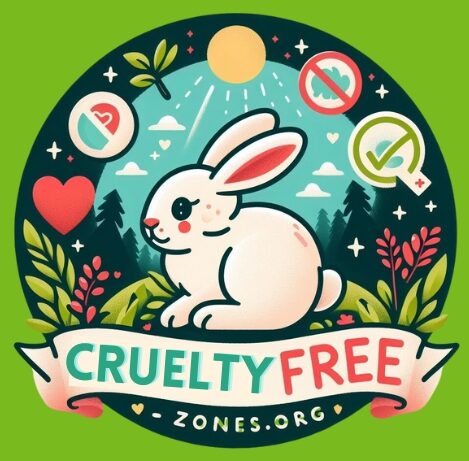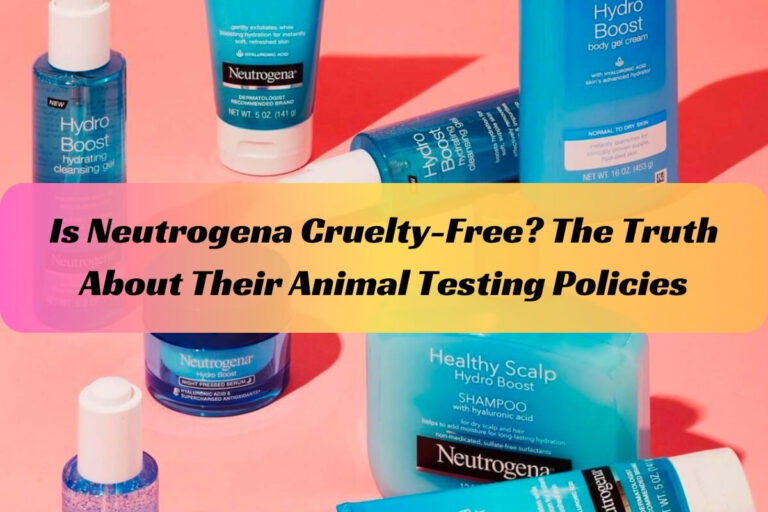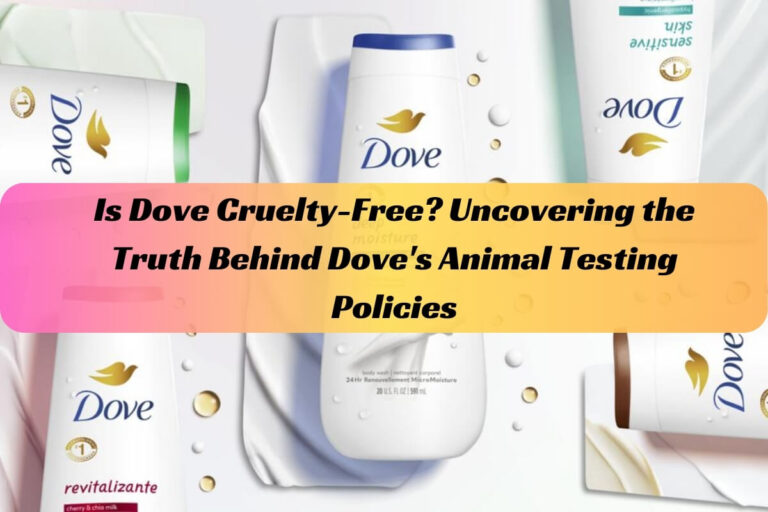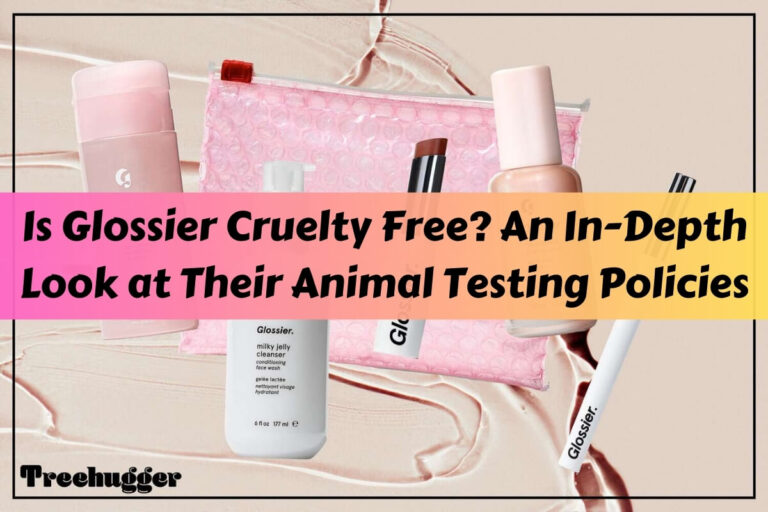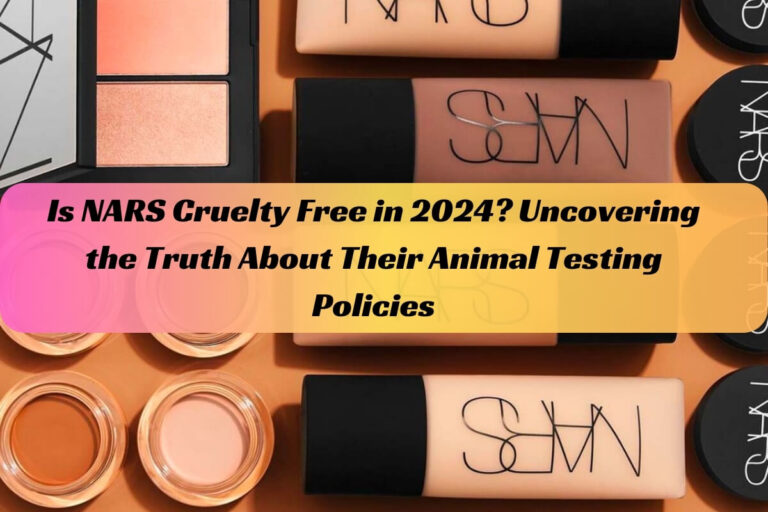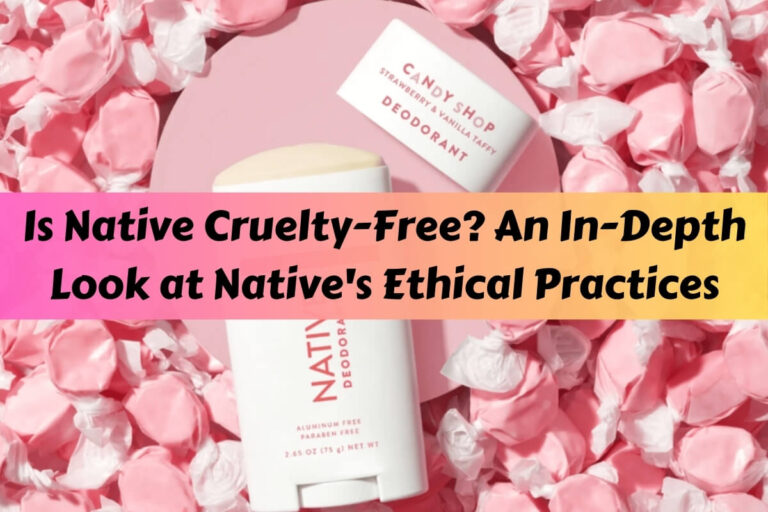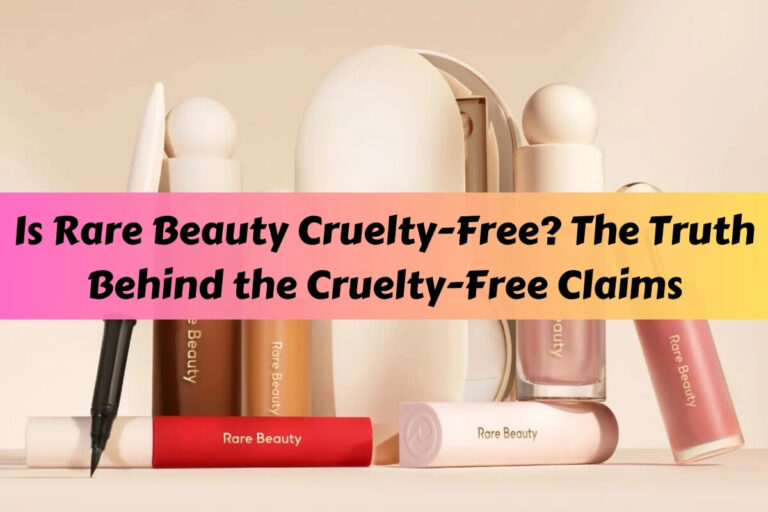Is Olay Cruelty-Free? An In-Depth Look at Olay’s Animal Testing Policies
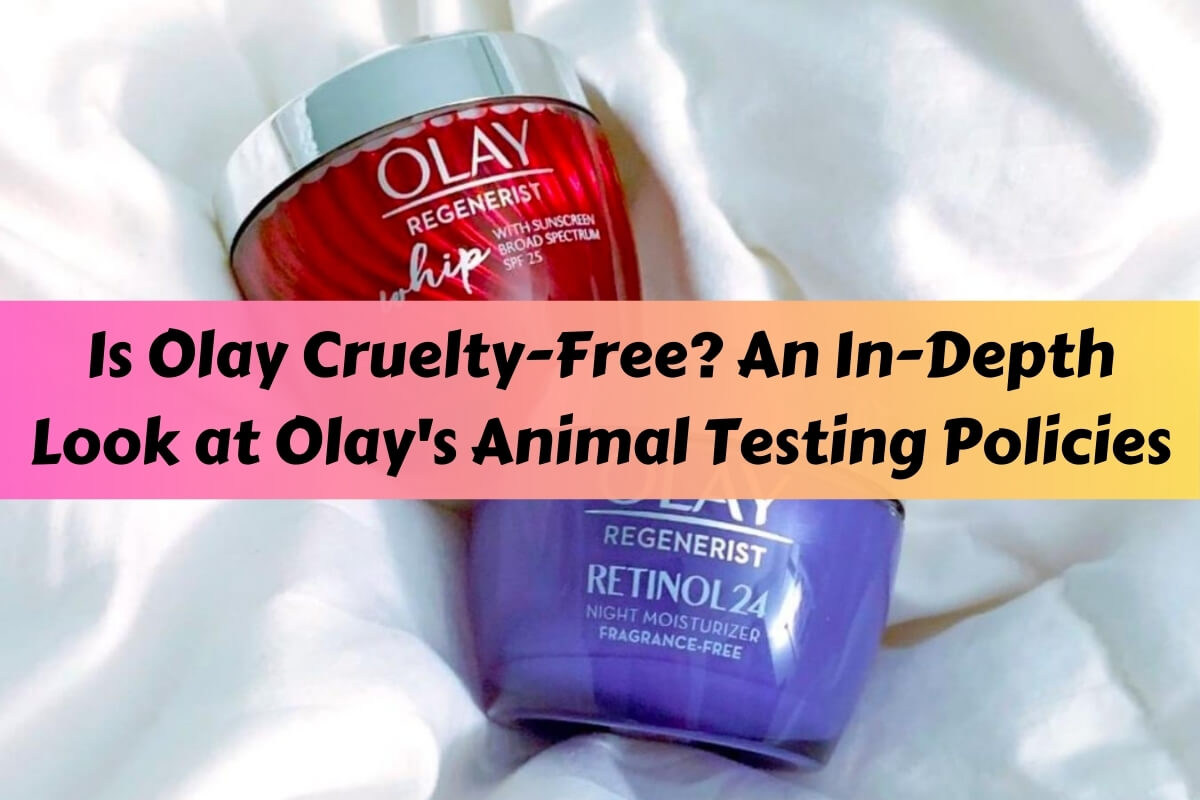
In today’s world, consumers are becoming increasingly conscious about the ethical practices of the brands they support. One of the key issues that has gained significant attention is animal testing in the cosmetics and personal care industry. As more people embrace cruelty-free and vegan lifestyles, they want to ensure that the products they use align with their values.
Among the many popular skincare brands on the market, Olay has been a household name for decades. However, with growing concerns over animal welfare, many consumers are asking: Is Olay cruelty-free?
The short answer is no, Olay is not a cruelty-free brand. They allow their products to be tested on animals in certain markets where it is required by law.
This article examines if Olay tests on animals. It discusses Olay’s policies on animal testing and cruelty-free practices. This information can help you decide if Olay aligns with your values. We’ll cover the following aspects:
- Understanding cruelty-free and animal testing in the cosmetics industry
- Olay’s official statement on animal testing
- Whether Olay products are sold in mainland China, where animal testing is mandatory
- Cruelty-free certifications and Olay’s status
- Olay’s vegan product offerings
- The impact of Olay’s parent company on their animal testing policies
- Recommended cruelty-free alternatives to Olay
- Frequently asked questions about Olay and cruelty-free practices
So, let’s begin our exploration of Olay’s cruelty-free status and help you navigate this increasingly important issue in the beauty industry.
Understanding Cruelty-Free and Animal Testing
Before we delve into Olay’s policies, it’s crucial to understand what “cruelty-free” means in the context of cosmetics and personal care products. The term “cruelty-free” refers to products that have not been tested on animals at any stage of development or production.
Animal testing in the cosmetics industry involves subjecting animals, primarily rabbits, guinea pigs, and mice, to various tests to assess the safety and efficacy of products or their individual ingredients. These tests can range from skin and eye irritation tests to ingestion studies, and they often cause significant distress and suffering to the animals involved.
The debate surrounding animal testing for cosmetic products has been ongoing for decades. While some argue that animal testing is necessary to ensure product safety, others believe that modern alternative testing methods, such as in vitro (test tube) studies and computer modeling, can provide equally reliable results without harming animals.
Olay’s Animal Testing Policy
Now, let’s examine Olay’s official stance on animal testing. According to their website, Olay states the following:
“We do not test our products on animals. Olay is working closely with governments around the world to provide alternative research methods to eliminate testing on animals, enabling cruelty-free skincare in the beauty industry. For example, in a few countries where Olay is sold, governments still mandate animal tests. In those cases, Olay can be required by law to submit our products to labs where we know animal tests are happening.”
This statement indicates that while Olay claims not to directly test their products on animals, they acknowledges that their products may be subjected to animal testing in certain markets where it is required by law.
Is Olay Sold in Mainland China?
One of the critical factors in determining a brand’s cruelty-free status is whether they sell their products in mainland China. China’s laws require that most cosmetic products sold in physical stores undergo animal testing, either during the product development stage or through post-market surveillance.
After investigating Olay’s presence in the Chinese market, it becomes clear that their products are indeed available for purchase in mainland China. This means that, despite their claims of not testing on animals themselves, Olay’s products are likely subjected to animal testing to comply with Chinese regulations.
China has changed its animal testing laws, exempting some cosmetics from testing if they meet certain criteria. Olay’s products are still sold in mainland China’s physical stores, indicating they don’t meet these criteria.
Cruelty-Free Certifications and Olay
Cruelty-free certifications from organizations like Leaping Bunny and PETA provide independent verification of a brand’s animal testing policies. These certifications are awarded to companies that meet strict criteria, including not conducting or commissioning animal testing for their products or ingredients, and not allowing third parties to conduct animal testing on their behalf.
Unfortunately, Olay does not hold any cruelty-free certifications from major organizations like Leaping Bunny or PETA. This lack of certification further reinforces the fact that Olay’s products are not considered cruelty-free by industry standards.
Is Olay Vegan?
While the terms “cruelty-free” and “vegan” are often used interchangeably, they refer to different aspects of a product’s formulation. Cruelty-free refers to the absence of animal testing, while vegan products do not contain any animal-derived ingredients or by-products.
Olay does not claim to be a vegan brand, and upon closer inspection, some of its products do contain animal-derived ingredients like lanolin, retinol, and honey. Therefore, while Olay may offer some vegan-friendly products, the brand as a whole cannot be considered entirely vegan.
Olay’s Parent Company and Animal Testing
Many cosmetic brands, including Olay, are owned by larger parent companies, which can influence their animal testing policies. Olay is a subsidiary of Procter & Gamble (P&G), a multinational consumer goods corporation.
P&G’s official animal testing policy states that they conduct animal testing “where required by law.” This means that while P&G may not directly test their products on animals, they allow third parties to conduct animal testing on their behalf in markets where it is mandated by law, such as in mainland China.
As their parent company’s policies inherently influence a brand owned by P&G, Olay’s animal testing practices, further reinforce their non-cruelty-free status.
Cruelty-Free Alternatives to Olay
For consumers who are committed to cruelty-free and vegan skincare, there are several alternatives to Olay that align with these ethical values. Here are a few recommended cruelty-free and vegan skincare brands:
- Pacifica Beauty: This brand offers a wide range of vegan and cruelty-free skincare, makeup, and personal care products. They are certified by PETA and the Vegan Society, ensuring their commitment to ethical practices.
- Herbivore Botanicals: Known for their botanical-based formulas, Herbivore Botanicals is a cruelty-free and vegan brand that focuses on natural and sustainable ingredients.
- Youth to the People: This brand offers a range of vegan and cruelty-free skincare products that are formulated with plant-based ingredients and backed by science.
- Tarte Cosmetics: While primarily known for its makeup line, Tarte also offers a selection of cruelty-free and vegan skincare products, including their popular Shape Tape line.
When choosing a cruelty-free alternative, it’s essential to research the brand’s policies and certifications to ensure they align with your values. Additionally, factors like product performance, ingredient quality, and sustainability practices should be considered.
Frequently Asked Questions
To address common queries and concerns, we’ve compiled a list of frequently asked questions about Olay and cruelty-free practices.
1. Does Olay directly test their products on animals?
According to Olay’s official statement, they claim not to directly test their products on animals. However, they acknowledge that their products may be subjected to animal testing in markets where it is required by law.
2. Is Olay’s parent company, Procter & Gamble (P&G), cruelty-free?
No, P&G is not a cruelty-free company. Their animal testing policy states that they conduct animal testing “where required by law,” which includes allowing third parties to test their products on animals in certain markets.
3. Can Olay products be considered vegan?
No, Olay does not claim to be a vegan brand, and some of their products contain animal-derived ingredients like lanolin, retinol, and honey. While they may offer some vegan-friendly products, the brand as a whole cannot be considered entirely vegan.
4. Are there any cruelty-free certifications for Olay products?
As of now, Olay does not hold any cruelty-free certifications from major organizations like Leaping Bunny or PETA.
5. What are some reliable sources for finding cruelty-free and vegan beauty products?
There are several reputable organizations and websites that can help you identify and choose cruelty-free and vegan beauty products. Here are some reliable sources:
- Leaping Bunny: This organization maintains a list of companies and brands that have been certified as cruelty-free after meeting their strict criteria.
- PETA’s Beauty Without Bunnies: PETA’s program provides a comprehensive list of companies that do and do not test on animals, as well as those that are actively working to eliminate animal testing.
- Cruelty-Free Kitty: This website is dedicated to providing information about cruelty-free and vegan beauty brands, offering reviews, and maintaining an extensive database of products.
- Logical Harmony: This website is a valuable resource for finding cruelty-free and vegan products, offering detailed brand guides and information on animal testing policies.
- Ethical Elephant: This blog focuses on cruelty-free beauty and vegan fashion, providing in-depth brand analyses and recommending ethical alternatives.
It’s always a good idea to cross-reference information from multiple sources and to stay updated on any changes in a brand’s policies or certifications.
Conclusion
In conclusion, while Olay has taken steps towards embracing cruelty-free practices and advocating for alternative testing methods, its current policies regarding animal testing and their presence in certain markets do not align with the values of many conscious consumers.
By allowing their products to be tested on animals in markets where it is required by law, such as in mainland China, Olay cannot be considered a truly cruelty-free brand according to industry standards. Additionally, their lack of vegan product offerings and cruelty-free certifications further reinforces their non-cruelty-free status.
For those seeking cruelty-free and vegan alternatives to Olay, there are several reputable brands available that prioritize ethical practices and align with these values. Ultimately, the choice to support or boycott a brand lies with each individual consumer, and it is essential to make informed decisions based on thorough research and personal beliefs.
As the demand for cruelty-free and vegan products continues to grow, it is hoped that more companies will prioritize ethical practices and seek alternative methods to animal testing, paving the way for a more compassionate and sustainable beauty industry.
